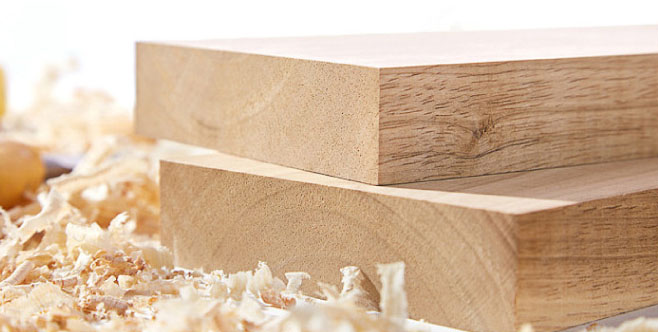You’ve probably heard of melamine, but you may not know what it is. Melamine is a thermosetting plastic, which is a durable and waterproof alternative to solid wood. In this article, we’ll explore the advantages of melamine, and what makes it such a good choice for your home. To start, it’s environmentally friendly, and better than MDF. Here are some other benefits to consider as well.
Melamine is a thermosetting plastic
When in its raw form, melamine resin is considered an organic material. However, melamine resin is chemically modified to become a thermosetting plastic. This resin is then mixed with a paper base to form a laminate that can cover other surfaces. This laminate is also referred to as melamine board. If you are interested in its properties, read on to learn more about it. This type of plastic is used in furniture, packaging, and even as a coating on other materials.
This resin is used for many applications, such as kitchenware, flooring, and laminates. It has excellent insulating properties and is suitable for difficult-to-fill pore structures. This makes it an excellent choice for soundproofing studios, auditoriums, and other similar settings. Its chemical makeup is compatible with all kinds of materials, including metals. This makes it the perfect material for applications that require high-quality insulation.
Unlike particleboard, melamine is lightweight and resistant to most stains and odors. The resin is layered over a high-quality fiberboard during the thermosetting process, which provides a strong and durable surface. It is also suitable for kitchen cabinet applications, as it can be found in a variety of color options and faux wood finishes. Another benefit of melamine is its ease of use.
Melamine is made from wood, paper, and resin. It is created by combining these three substances under extreme pressure. As it is molded, it retains its strength and shape. Melamine is also a thermosetting plastic, which means that its properties and durability cannot be changed. It is a great material for furniture, but it cannot be remolded. The good news is that melamine doesn’t break easily, and it is highly durable.
The process to manufacture melamine products starts with applying a melamine-impregnated paper. This is then pressed at high pressure and temperature. The melamine is then transferred to the wood particles. When the material is pressed, the resulting laminate is water repellent. During this process, a small amount of melamine remains in the plastic and eventually transfers to the food.
It is a durable alternative to solid wood
If you’re looking for a durable and budget-friendly alternative to solid wood, consider melamine density board. This material comes in a variety of colors and is extremely easy to clean. It’s also resistant to scratches and wear, and does not stain easily, unlike other wood products. But despite its benefits, melamine has a few disadvantages. First, it contains Melamine-formaldehyde, a chemical that’s classified as a carcinogen by the EPA. Formaldehyde is a common allergen, and it can cause respiratory problems and headaches.
Another notable difference between melamine and wood veneers is the material’s composition. Melamine is an artificial product made from melamine resin mixed with formaldehyde, while wood veneers are thin slices of natural wood. Sometimes tree bark is used, but most veneers are three or four millimeters thick. By contrast, Medium Density Fiberboard (MDF) is a natural product. It’s composed of wood fibers bonded together under high pressure and heat.
Melamine mdf board prices more expensive than MDF, but it is more durable than MDF. This material is also more flexible and can be bended without cracking. It’s important to note that melamine is made from solid wood waste, so it’s environmentally-friendly. MDF, on the other hand, requires sanding and has less durability than melamine. Fortunately, there are other benefits to using MDF instead of solid wood.
The benefits of Melamine over MDF are worth considering when deciding which type of wood to choose for your project. While both types of materials are able to provide you with the same amount of durability, melamine is more durable and scratch-resistant than MDF. For example, it’s not as expensive as solid wood, and it’s easy to find pieces that are made from MDF.
Another benefit of MDF is its realistic-looking surface. While painted flat packs can’t match the look of solid timber, MDF mimics it. Popular wood textures include white oak, red oak, mahogany, and walnut. Ash is also popular for shabby-chic furniture. It has the look of natural wood, without the cost. The durability of MDF has become a huge plus for many consumers.
It is more environmentally friendly
Melamine board is an alternative to MDF or solid wood. Its primary characteristics are its natural finish and waterproof immersion treatment. However, it does not offer the same strength as solid wood or MDF. This material has numerous design options. If you are concerned about the environmental impact of your project, melamine might be the best choice. If you are concerned about odor, this material is also available in a variety of colors and textures.
Melamine is more water-resistant than plywood, making it an excellent choice for outdoor use. This material is made from compressed wood chips that are coated in glue to prevent water from migrating through the layers. Melamine also has a water-resistant face, which makes it more durable than plywood. However, melamine is more expensive than plywood and it varies in price depending on the region and type of timber used for its production.
Another benefit of melamine density board is its light weight. It can replace wood panels and is easy to clean. It is also renewable and is in line with the established policies on energy saving and ecological protection. It can be used in interior decoration applications as well, replacing wood panels with mirror finish, anti-static, and high wear-resistant finish. The environmental benefits are obvious, as is its durability. There is a long list of other uses for melamine board.
Due to its heat-resistant properties, melamine is not an ideal choice for food and beverage storage. The substance is not biodegradable, compostable, or recyclable. Consequently, it is not an option for outdoor use. This material is more suitable for indoor use as it is not susceptible to water-based vapor. Soaking up a small amount of melamine will help the environment while at the same time increasing the quality of the products.
When compared to particle board, melamine density board is much more environmentally friendly. The main difference between the two is that density board is cheaper. Particle board, on the other hand, is made from wood chips. Hence, it is much weaker than density board, but it is also cheaper. The final choice is up to you. This article explores the benefits and drawbacks of melamine density board.
It is more waterproof than MDF
Although MDF is not as strong or durable as plywood, it is far less expensive and easier to work with. Its versatility and affordability make it an excellent choice for most projects. If you are on a budget, you can find cheaper versions of melamine board that are made in the United States. However, make sure to shop for a quality board and avoid buying boards from China. This will ensure that the material is waterproof.
Some brands of mr MDF are rated as waterproof, but not all are. While many brands of mr MDF are waterproof, others must be treated with sealants and paint. Some products will swell when exposed to excessive moisture and humidity. This means that you must test the MDF you buy to be sure that it will withstand outdoor exposure. This article will help you decide whether to buy this type of product.
MDF and Melamine are both excellent choices for kitchen furniture. But there are some disadvantages to each material. First of all, MDF is less expensive and is less flexible than melamine. Both types are durable but require different methods for painting. While MDF is more waterproof than Melamine, it is still not completely waterproof. In certain situations, MDF should be painted first, because MDF will warp and become brittle after the initial application.
Secondly, MR MDF is more durable. The MR variety can withstand moisture and is much stronger than standard MDF. Standard MDF can swell when wet, but is still repairable once the water is dry. In general, if you need to repair your MDF, it is best to purchase the waterproof variety. It’s better to invest in the best material for your home than save money on a poor one.
Another benefit of Melamine is that it mimics the appearance of real wood, so you don’t need to worry about damage due to water. Also, compared to MDF, melamine is more resistant to scratches and stains than its rivals. It is important to keep in mind, however, that melamine is not without its disadvantages. The binding agent in Melamine boards is Formaldehyde, which has been identified by the Environmental Protection Agency (EPA) as a carcinogen. Not only does it affect the beauty of your home, it can also lead to respiratory problems and migraines.

